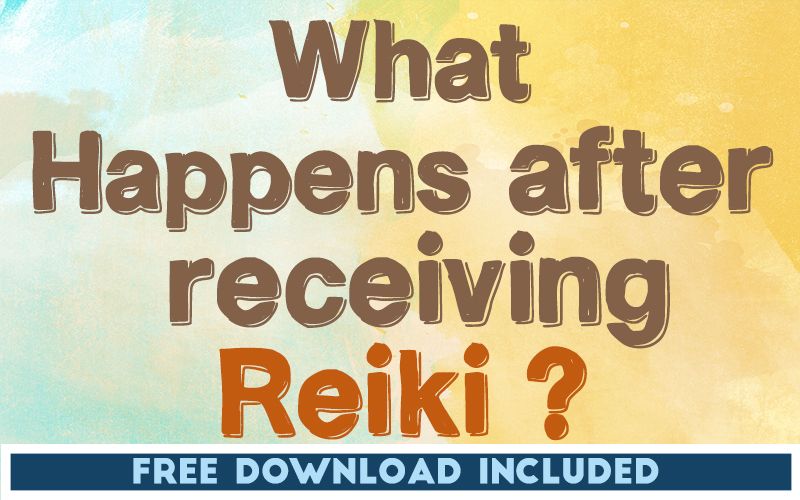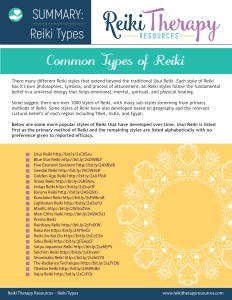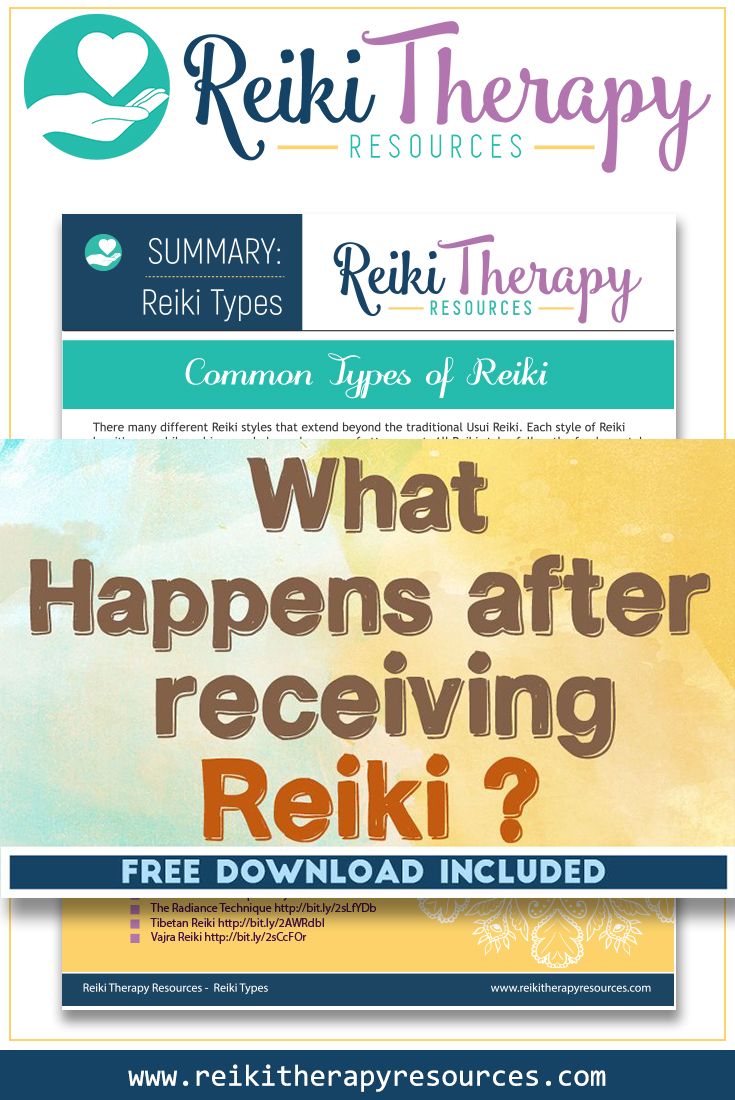
THIS POST INCLUDES:
——————————————–
1. What to expect after Reiki
2. Physical Experience
3. Emotional Experience
4. Free Download Types of Reiki Summary Guide
WHAT TO EXPECT AFTER REIKI
We’ve previously covered the details of What Happens in a Reiki Session in a previous blog post. This article will provide some additional information on what you can expect to experience after your Reiki session so that you can effectively integrate the benefits of your session into your life as well as understand the various physical and emotional effects that Reiki may bring.
Reiki provides various benefits in session, however, these benefits can also extend to your life after the actual session. Often we may reflect on the session at a later time and this can impact how we think and feel about certain aspects of our life.
The effects of a Reiki session can be felt immediately after the session as well as some time after. Each person’s response is different. Often, we will look for proof of mental or physical changes in response to Reiki treatment, however, much of our inner is conducted at the subconscious level. We typically use our conscious thoughts to inquire, investigate and rationalize thoughts. In the case of Reiki, much of the healing is done outside of our conscious efforts and therefore can be difficult for us to quantify.
Remain open to the effects of your Reiki session and understand that your body and mind are working in tandem with the energy flow of Reiki.
You can spend some time after your session reflecting on your emotions, thoughts, and physical response to the Reiki session. Use this time to write in a journal or record your thoughts somehow. You may want to meditate, create art, go for a gentle walk in nature. Participating in kind and loving self-care for yourself after your Reiki session will help extend the benefits that you receive from Reiki.
If you’ve never been to a Reiki session before, you may be wondering what happens during a typical session. Reiki sessions are conducted to enhance your experience of healing. Your Reiki practitioner pays attention to ensuring the environment is designed to make you feel relaxed and at ease. This includes soft music, soft lighting, and subtle scents. Your practitioner’s room should be quiet and not contain any distracting, offensive or loud objects.
Reiki sessions typically last 30-60 mins. A Reiki session will offer a useful amount of time to allow you to relax into receiving Reiki, as well as provide the practitioner enough time to work on the basic hand positions. Your Reiki session may also involve a short time of discussion with the Reiki practitioner about what you can expect before, during and after a session.
Reiki is typically conducted in your practitioner’s therapy room, however, Reiki can also be conducted in any location as well as by distance where you are not in the same room as your Reiki therapist. Regardless of the location, Reiki is best received in a quiet environment without distractions.
PHYSICAL EXPERIENCE
One integral part of a Reiki treatment is the physical experience that you may feel during and after treatment. Reiki typically involves you lying on a table or sitting in a relaxed position. Most people close their eyes and narrow down their focus to regulate their breathing and relaxing their muscles. This action alone can help make you feel more relaxed with a significant reduction in tension.
After the Reiki session, you may feel more relaxed and calmer and more present with where you are. Your senses may be more heightened with touch, taste, and sight. You may also feel dehydrated and tired so with that in mind, you should hydrate with water soon after your session.
It’s recommended that you try not to schedule any physical or cognitively demanding activities after a Reiki session. If you can take a nap after treatment, this can be beneficial. Alternatively, if you do engage in physical activity, a slow walk in nature can provide you with some benefit. Reiki is working through your body after a session and therefore it’s useful to let Reiki take priority and aim to not have your attention diverted to any other activities that may negate the benefits that Reiki has provided.
EMOTIONAL EXPERIENCE
Reiki can also provide an enhanced emotional experience that continues after treatment. If you are going through an emotional transition, you may feel liberated from emotional repression. You may feel lighter due to releasing any held tension in your body. This can influence how you generally feel about your body and your overall wellbeing. If you were feeling tense before a session this tension could be impacting you emotionally by feeling upset that you feel physically stressed and unable to disconnect from your emotions to relax.
A Reiki session can help relieve that feeling by giving you the space to release tension and participate in important self-care through focusing on yourself.
As your senses are heightened after a Reiki treatment, you may also become more aware of your surroundings including noticing imagery and smells that make you feel overwhelmed with gratitude. As Reiki helps you connect to the universal energy around you, it may mean your perspective on specific aspects of your life becomes clearer in terms of what is most important to you. This clarity can result in an emotional experience for some.
If you begin to feel overwhelmed by your emotions, you may benefit from the below suggestions:
- Meditate
- Undertake gentle exercise to release tension and endorphins
- Engage in a self-care activity such as watching a funny movie or talking with a friend
- Journal your thoughts and feelings
- Contact your Reiki practitioner to schedule another session
- Contact a mental health professional to explore your emotions further through talk therapy
FURTHER READING
Below are some suggestions for additional reading on this topic:
FREE DOWNLOAD
SIGN UP below to receive your FREE DOWNLOAD. Once you enter your email address, you will receive access to the Free Types of Reiki Summary Guide.

BUILD YOUR REIKI REFERENCE MATERIALS:
Pin this image to your Pinterest board.

SHARE KNOWLEDGE & PASS IT ON:
If you’ve enjoyed this post, please share it on Facebook, Twitter, Pinterest. Thank you!
